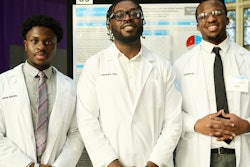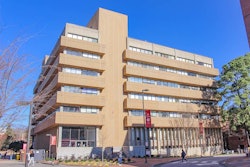Marymount College in Tarrytown, N.Y., has introduced a new health psychology concentration — an area of study that considers the ways physical, social, emotional and behavioral functions all play a role in a person’s health.
Students will be prepared for careers as biofeedback technicians, stress reduction trainers, research assistants and health maintenance organization counselors. They will be placed in internships where they can explore these positions and start making networking contacts in their field before searching for a job.
For more information, contact Dr. Sally Wendt at (914) 631-3200.
The University of California-Davis will open a telemedicine training center next month thanks to a $1 million grant from the California Healthcare Association. The Tele-medicine Learning Center will be housed at UCD’s Medical Center in Sacramento and administered by the university’s Health System’s TeleHealth Program.
The center will train hundreds of healthcare providers and support staff throughout California in telemedicine, a discipline that uses video and computer technology to extend healthcare to areas that lack doctors.
“Telemedicine is expanding very rapidly,” says Dr. Thomas S. Nesbitt, acting assistant dean for TeleHealth, outreach and special projects. “With this growth is a desperate need for training in how to operate the new programs. The UCD Telemedicine Learning Center will train people in the clinical, technical and operational aspects of telemedicine — from how to conduct an examination via telemedicine to how to repair the equipment.”
Nesbitt says the program should enable the number of telemedicine sites statewide to exceed 100. A three-year plan calls for training at least 240 representatives of California organizations interested in developing or expanding telemedicine programs. In addition, faculty from northern and southern California medical schools and other professional schools will participate in workshops designed to incorporate telemedicine information into their curricula. The university also has committed to creating a Southern California telemedicine learning center next year.
For more information, visit the center’s Web site at <https://health.ucdavis.edu/>.
To help ease Virginia’s looming teacher shortage, George Mason University has created a program to help uncertified teachers meet the commonwealth’s teaching requirements while on the job. Currently, teachers hired without proper certification have three years to obtain it or face dismissal.
The new initiative is called “Teacher Education Licensure Fulfillment.” It takes teacher preparation down to the state’s basic requirements. Over a period of three years, teachers in the program will receive the necessary instruction to acquire licensure equal to that of their traditionally educated counterparts, university officials say.
Participants will be required to take courses on the foundation of education, learning theory, instructional methods, the teaching of reading, special education and instructional technology.
“We have had an enthusiastic response from school divisions,” Dr. Gary Galluzzo, dean of the university’s graduate school of education, told The Washington Post. “This is our way of addressing the teacher shortage issue. Before, these people would have taught for three years and then been terminated if they didn’t meet state requirements.”
For more information, contact the
university at (703) 993-4648.
© Copyright 2005 by DiverseEducation.com


















